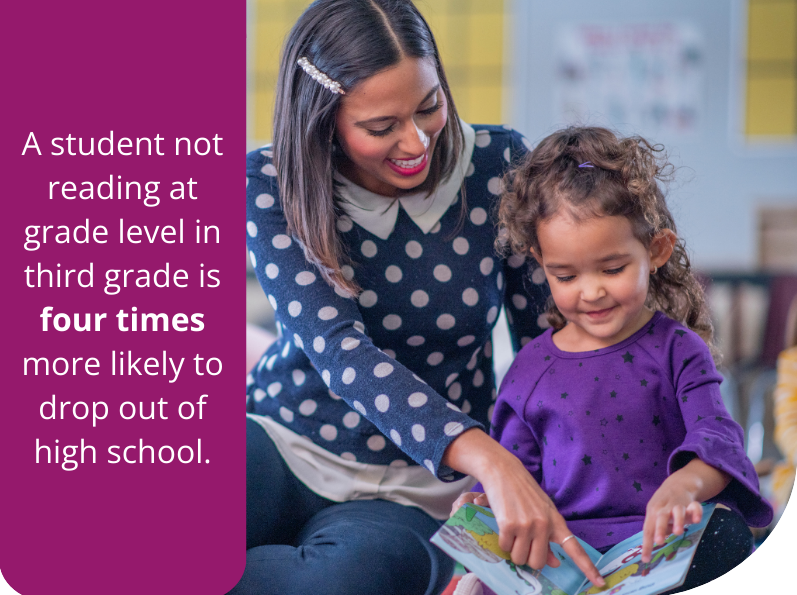Bright Start Northeast Tennessee
IN PARTNERSHIP WITH
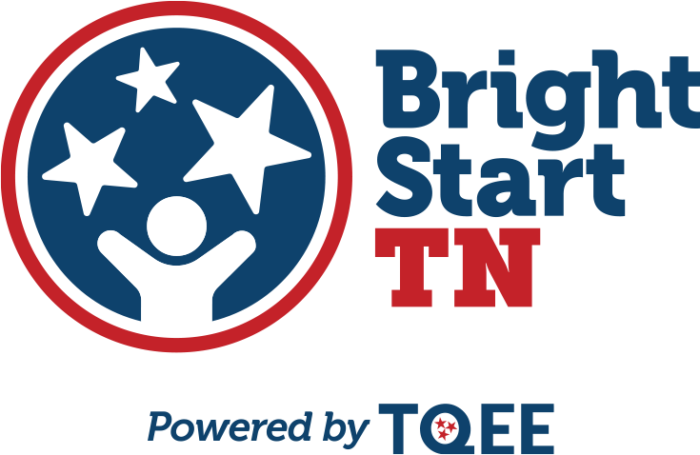
An Initiative of Tennesseans for Quality Early Education (TQEE), Bright Start TN is a statewide network of community partnerships dedicated to accelerating early learning outcomes, closing achievement, and opportunity gaps for Tennessee children, from birth through third grade. With the STRONG Accountable Care Community serving as the convening entity for Bright Start Northeast Tennessee, a plan has been developed to improve third grade reading and math proficiency over the next three years.
We all share a role in offering the highest-quality services and education to meet the needs of all NETN children, from birth through third grade. In our three-year plan, we’ve identified strengths, barriers and gaps, proposed collaborative solutions, and committed to continuous assessment of what’s working for young children and families. With the goal of Bright Start NETN to raise third-grade reading and math proficiency, the plan addresses root factors of non-proficiency. Our Steering Committee, informed by stakeholder engagement with hundreds of individuals, identified strategies to address these root factors.
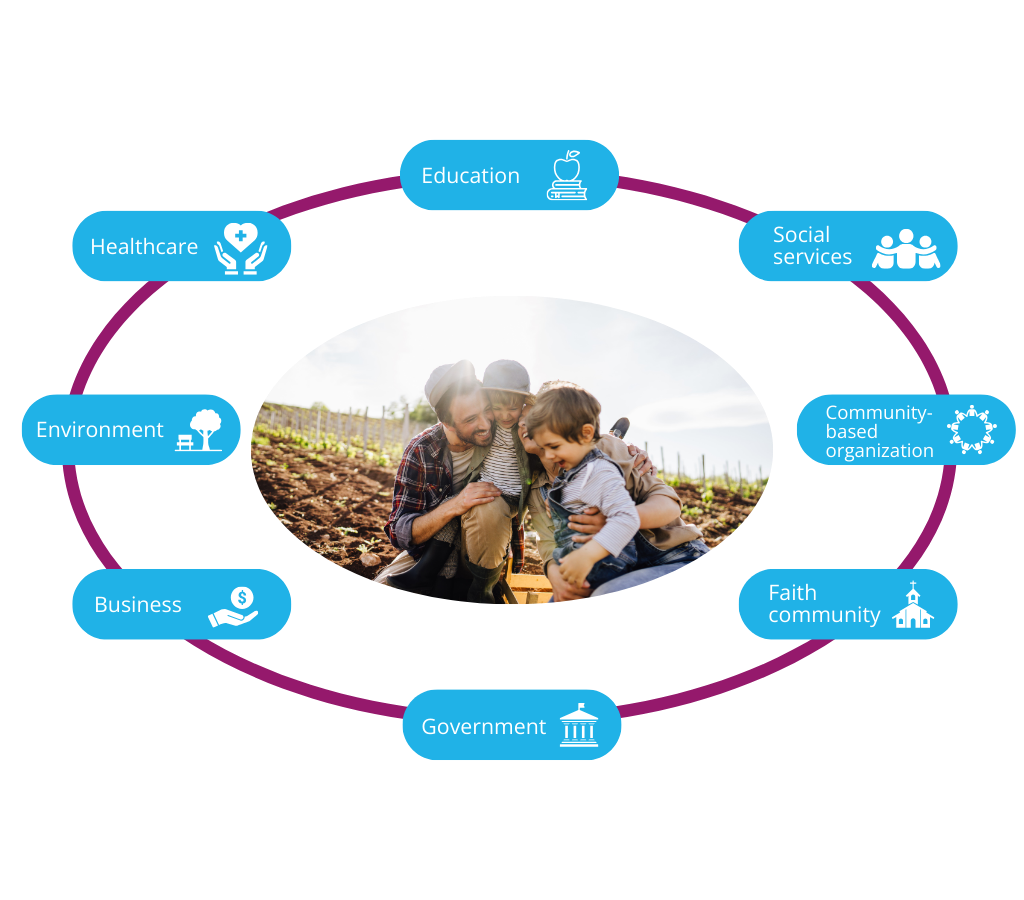
Goals
- Increase the percentage of economically disadvantaged third graders on-track in reading and math by 15 percentage points in the region by 2025 (25% to 40%).
- Increase the percentage of TennCare enrolled children attending well-child visits in the region by 2025.
- Increase in the ratio of high-quality child care slots to children under 6 to 50% in the region by 2025.
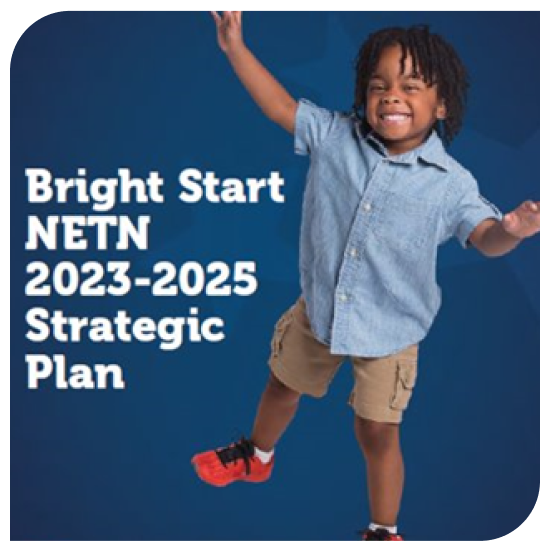
Strategies
Communities In Schools
- Expand Communities in Schools of the Appalachian Highlands into NETN elementary schools and establish Community Schools
Clinic Integrated Services
- Promote integration and/or navigation of therapy services, dental care, mental and behavioral health services, early intervention, lactation consultation and parenting supports in pediatric and family practice clinics.
Microcenter Network
- Establish 15 microcenters (7-12 children each) over three years.
Addressing Substance Use
- Assess needs related to substance use disorder treatment/recovery and identify services and opportunities to meet needs.
ECE Workforce Development and Support
- Provide early childhood education opportunities in high school
- Establish a hub for ECE professional development and supports
Early Head Start/Head Start
- Address transportation needs
- Expand high-quality care from birth until three years
Evidence-Based Home Visiting (0–8)
- Assess and document current home visiting programs
- Educate individuals and organizations on referring to programs
Project On Track
- Support high-dosage, low-ratio language and math tutoring in all 17 school districts
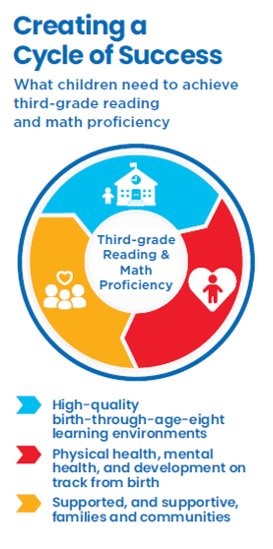
Special Initiative
- School districts in the region will identify and use a common school readiness screener to measure school readiness.
